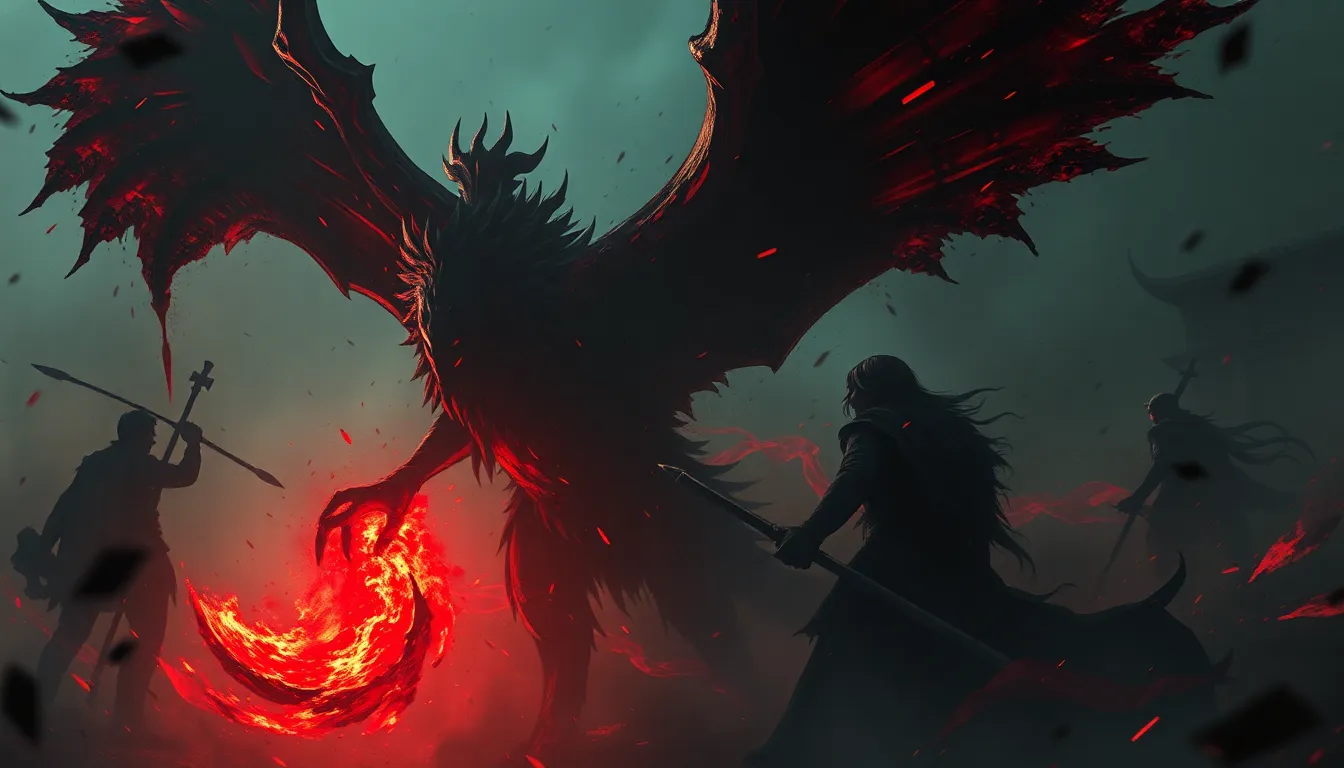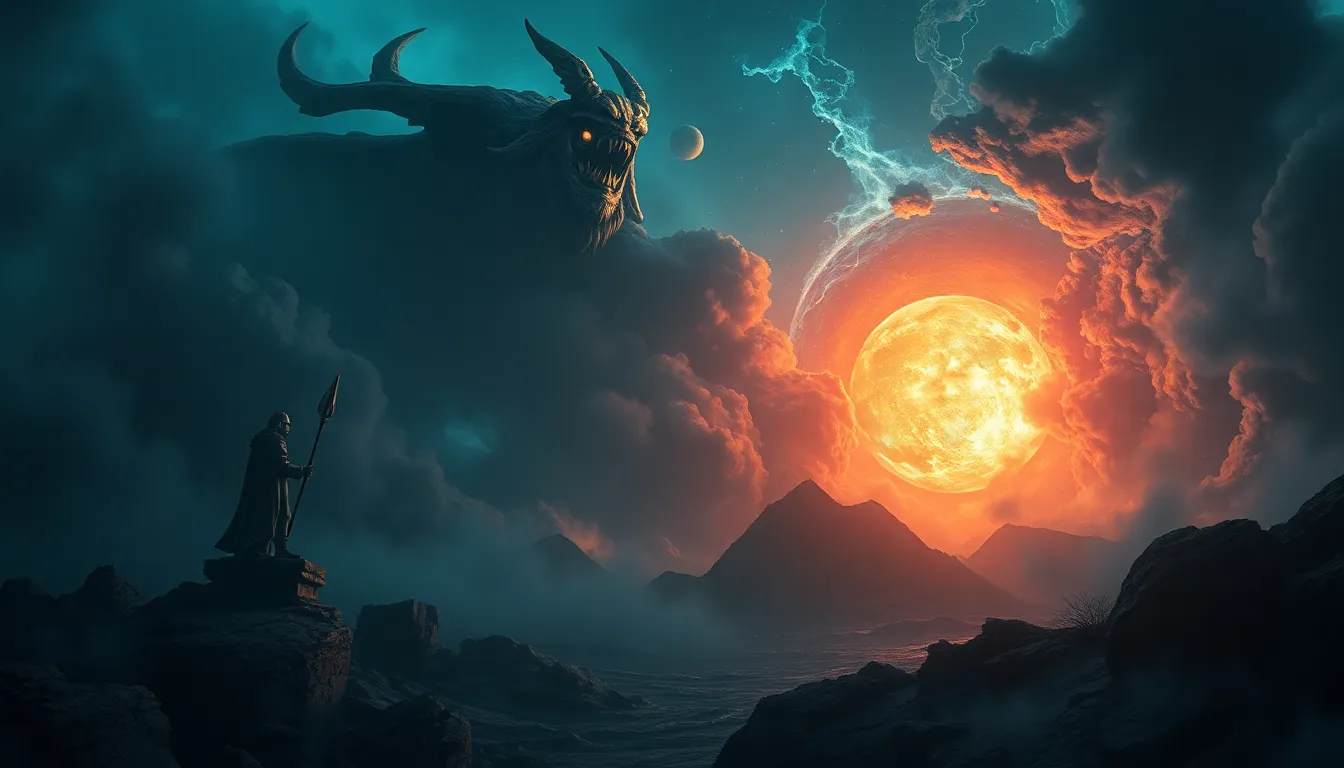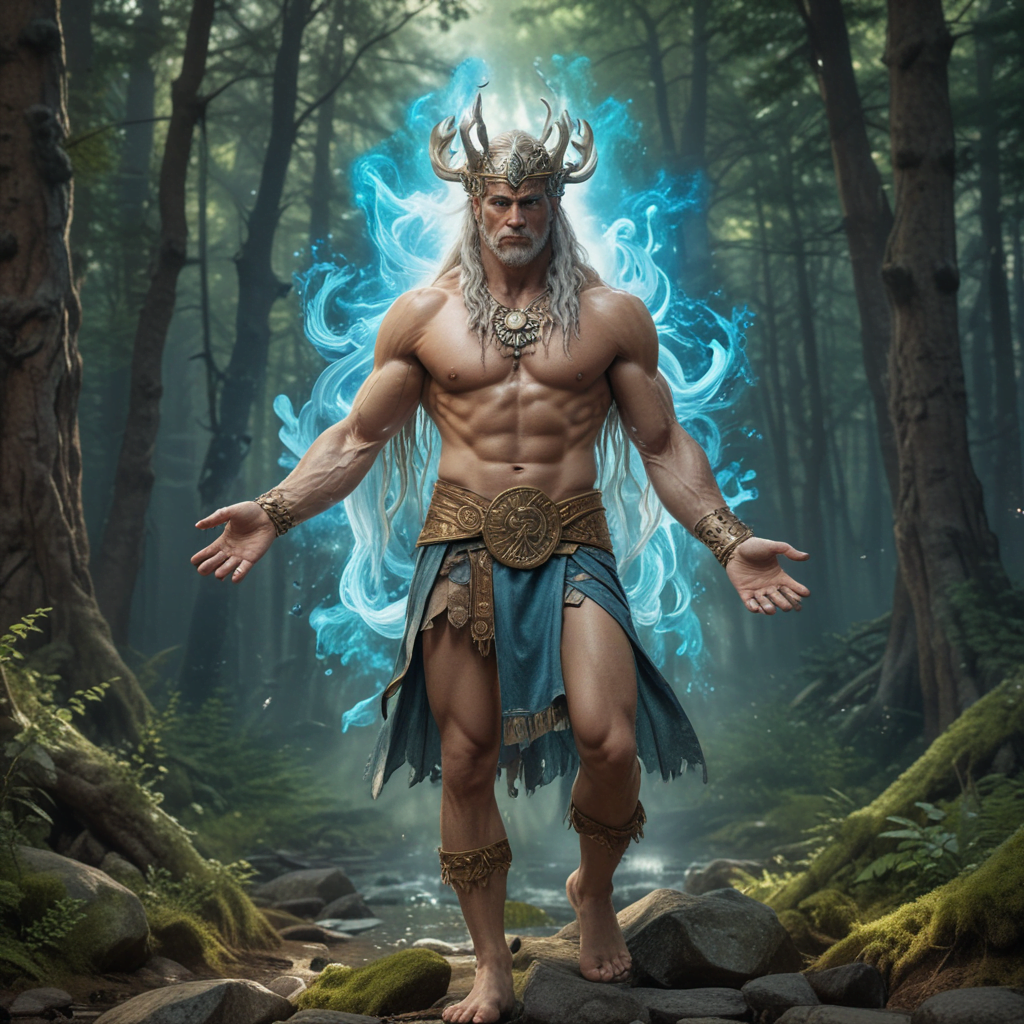Blood and Bravery: The Most Dramatic Mythological Conflicts
I. Introduction
Mythology serves as a rich tapestry of stories that encapsulate the beliefs, values, and fears of cultures throughout history. It provides insights into the human condition, exploring themes of morality, existence, and the complexities of life. Mythological narratives often revolve around conflicts that reveal the essence of bravery and the consequences of bloodshed.
This article aims to explore the dramatic conflicts found within various mythologies worldwide, highlighting their significance and the enduring lessons they impart. Through examining these mythological wars and struggles, we gain a deeper understanding of how they reflect our own conflicts and the essence of humanity.
II. The Nature of Mythological Conflicts
At the heart of many myths lies the theme of conflict, often characterized by bloodshed and acts of bravery. These narratives typically feature epic battles between good and evil, gods and mortals, and heroes and villains.
A. Themes of Blood and Bravery in Myths
Blood and bravery are intertwined in mythological tales, where the stakes are often life and death. Conflicts can arise from:
- Power struggles among deities
- Personal vendettas
- Struggles for survival against overwhelming odds
These themes resonate deeply, as they reflect the challenges faced by individuals and societies throughout history.
B. Psychological and Cultural Significance
Mythological conflicts serve not only as entertainment but also as a means of cultural expression and psychological exploration. They often reflect:
- The collective fears and hopes of a society
- Moral dilemmas faced by individuals
- Lessons on courage, sacrifice, and the nature of evil
These narratives provide frameworks for understanding our own lives and the conflicts we encounter.
C. The Role of Heroes and Villains
Heroes and villains embody the extremes of human nature, often clashing in dramatic confrontations that drive the narrative forward. Heroes typically represent ideals such as bravery, honor, and sacrifice, while villains often symbolize chaos, greed, and destruction.
This dichotomy allows audiences to explore complex moral questions and the nature of good versus evil.
III. Greek Mythology: The Epic Battles
Greek mythology is replete with tales of epic battles that highlight themes of love, betrayal, and honor.
A. The Trojan War: Love, Betrayal, and Honor
The Trojan War, sparked by the abduction of Helen, is one of the most famous conflicts in mythology. It involves key figures such as Achilles, Hector, and Agamemnon, and explores themes of honor and vengeance.
B. Clash of the Titans: The Battle for Supremacy
The Titans’ battle against the Olympian gods led by Zeus marks a significant power shift in Greek mythology. This conflict emphasizes the cyclical nature of power and the struggle for dominance.
C. Heracles and the Twelve Labors: Trials of Courage
Heracles’ Twelve Labors represent personal trials that test his bravery and strength. Each labor symbolizes a different aspect of human struggle and the quest for redemption.
IV. Norse Mythology: Valor in the Face of Doom
Norse mythology is rich with narratives of valor, often set against the backdrop of impending doom.
A. Ragnarok: The End of Days and its Prophecies
Ragnarok foretells a cataclysmic battle where gods and giants clash, resulting in the death of many deities, including Odin and Thor. This conflict symbolizes the inevitable cycle of destruction and rebirth.
B. The Saga of Beowulf: Heroism against Monsters
In the epic tale of Beowulf, the hero faces the monstrous Grendel, representing the struggle against evil and chaos. Beowulf’s courage and strength exemplify the heroic ideal in Norse culture.
C. Odin and the Valkyries: The Selection of the Brave
Odin’s Valkyries choose who will live and die in battle, emphasizing the significance of bravery and honor in Norse society. This selection process highlights the cultural value placed on valor in the face of death.
V. Egyptian Mythology: Divine Conflicts
Egyptian mythology showcases a variety of conflicts that involve gods and the struggle for power.
A. Osiris vs. Set: The Struggle for the Throne
The conflict between Osiris and Set represents the eternal struggle between order and chaos. Set’s betrayal of Osiris leads to a series of events that shape the mythology of ancient Egypt.
B. The Battle between Horus and Set: Kingship and Justice
Horus’ fight against Set not only symbolizes the rightful claim to the throne but also embodies themes of justice and retribution. Horus’ victory signifies the restoration of order in the world.
C. The Role of Bloodlines in Mythological Power Struggles
Bloodlines play a crucial role in Egyptian mythology, often determining legitimacy and power. These conflicts illustrate the complex relationships between deities and their offspring.
VI. Hindu Mythology: Cosmic Battles and Moral Dilemmas
Hindu mythology is characterized by grand narratives that explore cosmic battles intertwined with ethical dilemmas.
A. The Mahabharata: Family Feud and Ethical Conundrums
The Mahabharata depicts a catastrophic war between two factions of a royal family, raising profound questions about duty, morality, and the consequences of conflict.
B. Ramayana: The Fight for Dharma and the Rescue of Sita
The Ramayana centers on the battle between Rama and the demon king Ravana, emphasizing the importance of dharma (righteousness) and the lengths one must go to protect loved ones.
C. Deities and Demons: The Eternal Struggle between Good and Evil
The constant battles between deities and demons in Hindu mythology illustrate the perpetual struggle between good and evil, reflecting the moral complexities of existence.
VII. Asian Mythology: Heroism and Sacrifice
Asian mythologies are rich with tales that highlight heroism and the sacrifices made by individuals.
A. Chinese Mythology: The Battle of the Gods
In Chinese mythology, epic battles between gods, like the one depicted in “Investiture of the Gods,” showcase themes of loyalty, betrayal, and sacrifice in the fight against tyranny.
B. Japanese Mythology: Yamata no Orochi and the Bravery of Susanoo
Susanoo’s battle against the eight-headed serpent Yamata no Orochi highlights themes of bravery and the triumph of good over evil, fundamental to Japanese cultural narratives.
C. The Role of Bloodlines and Ancestry in Heroic Tales
Many Asian myths emphasize the importance of lineage and ancestry, often portraying heroes who rise from humble beginnings to achieve greatness through their bravery and sacrifice.
VIII. African Mythology: Conflicts of Creation and Identity
African mythology presents rich narratives of creation and identity intertwined with conflict.
A. Anansi the Spider: Trickery and Bravery in Folktales
Anansi, the trickster spider, embodies cleverness and bravery, navigating conflicts through cunning rather than brute force. His tales reflect the complexities of identity and morality.
B. The Great Migration Myths: Survival and Struggle
Migration myths often depict the struggles of communities in search of identity and belonging, showcasing the bravery required to overcome adversity.
C. The Importance of Ancestors in Conflict Resolution
In many African cultures, ancestors play a crucial role in guiding the living through conflicts, emphasizing the connection between past and present in resolving disputes.
IX. Modern Interpretations of Mythological Conflicts
Mythological conflicts continue to influence contemporary literature and pop culture, providing timeless narratives that resonate with modern audiences.
A. Influence on Literature and Pop Culture
Mythological themes have permeated literature, films, and art, often reinterpreted to fit modern contexts. Characters inspired by mythical heroes and villains continue to shape narratives in various media.
B. Reinterpretations in Film and Television
Films such as “Troy,” “Clash of the Titans,” and television series like “Game of Thrones” draw heavily on mythological themes, reflecting the enduring relevance of these ancient conflicts.
In conclusion, the exploration of mythological conflicts reveals deep insights into human nature, societal values, and the timeless struggle between good and




